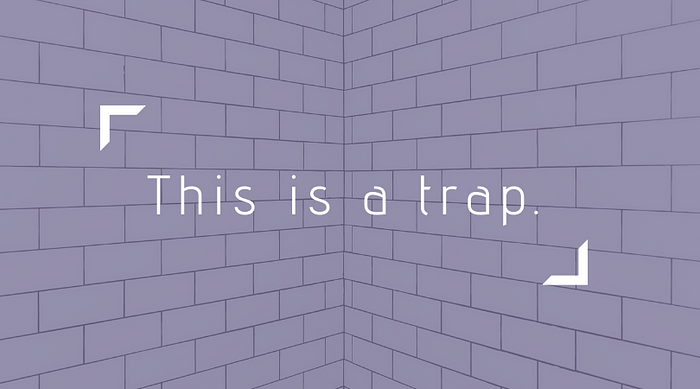Jul 10 · 3 min read

Never say “I don’t have a choice,” or “I am trapped” or surrender to that feeling. Both statements, if followed, are career choices that will cost you a high price. Think you have no choice? Think again.
What Your Responses Reveal About You
Fear Of The Unknown
Staying where you are is preferring the “devil you know” over jumping to unknown waters. It’s a desire to be in control, but it’s a dirty mind-trick that turns you into a slave to the status quo. What if you actually liked the new job, new employer or unknown waters you’d enter?
Fear Of Failure
You know how to do your job where you are, so it feels natural to stay because you know what it takes to get approval for your work. If you were promoted, switched departments or even your career, you wouldn’t have the assurance. That can feel scary.
Think back about the time when you started your current job. Did you have any guarantees you would succeed? Of course not. There are no such guarantees in life. What if you never tried making a change? How would that make you feel? And, oh, what if you succeeded in a new position after a promotion or job change? How would success look like? How does failure look like if you were looking back at today in 20 years from now?
Convenience Mentality As A Career Choice
Whether you love your job or hate it, staying inactive by not investing in your growth is creating planned career dead-ends. In this day and age, no one can afford complacency at work. You miss skilling up to match important job trends that keep you attractive to employers. This may be of no risk in a booming economy, but you’ll regret that decision and attitude in a downturn.
The High Price Of Staying Where You Are
The price you pay beyond a career dead-end is affecting your productivity, your contribution to your employer’s revenue and your creativity. The latter means you will unlikely come up with creative solutions that help your employer to grow in new markets, which in turn affects your career.
Overall, your complacency equals disengagement and that shows in numbers. Since engaged employees perform better than their complacent counterparts, what do you think this means for your next performance review?
Even your health is affected by your unhappiness and disengagement at work.
“Gallup found that the top 25 percent of engaged workers had 50 percent fewer accidents, as well as significantly lower health costs.” (Source: Good&Co)
So, all in all, being unhappy or complacent at work impacts your finances, health, happiness, and likely your chances to find work in the future. Not a good proposition. What are your options if you feel caught in a dead-end already?
How To Explore Other Career Choices
Ask yourself how it would feel if you were still in the same position in 2, 5, 10, or even more years from now. The thought could horrify you out of indecision. Just sayin’.
What Options Do You Have (a.k.a. Career Choices)?
- Ask yourself what you had always wanted to do when you started your career.
- Consider what new trends have excited you recently. For example, if you are intrigued by trends like AI (Artificial Intelligence):
- How could you dig into this topic?
- What positions are being created around this trend that interest you?
- What would it take for you to skill up to that role?
- What career paths are available in your organization?
- Who would be a great mentor to help you grow in your organization (or externally)?
No matter how trapped you feel at work, complacency is a career choice. It’s the choice of being passive and accepting the consequences and the consequence is a career dead-end. What you can do is actively participating by exploring other options and taking charge of your part in the game.
Image credits: Burst, Good&Co.
This article was originally published on Medium – click to comment.






